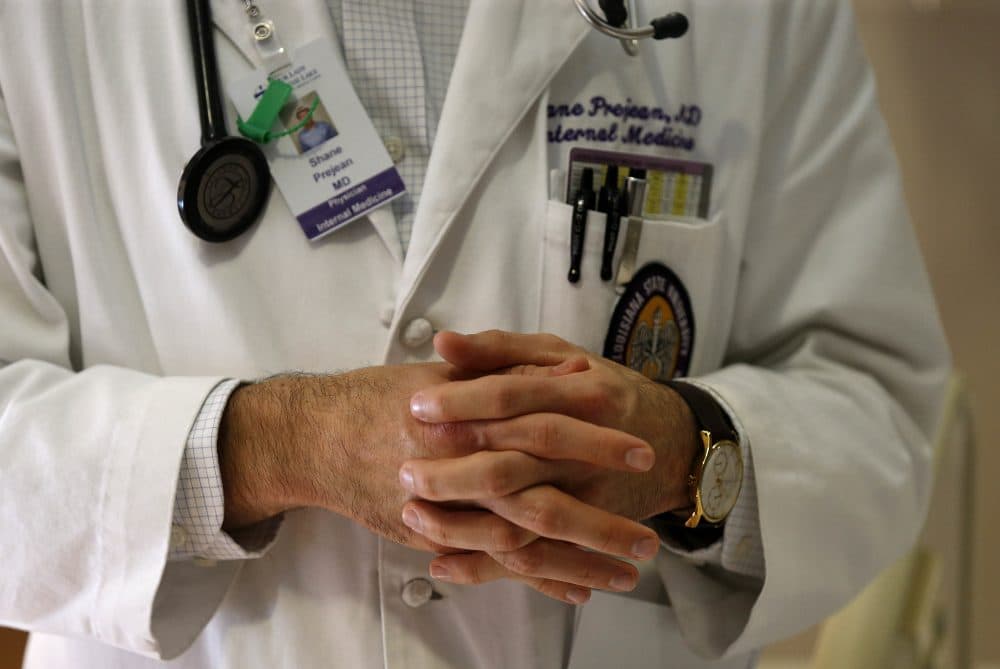Advertisement
Narrating Medicine
Against Medical Advice: Sometimes, When Patients Defy Accepted Wisdom, So Must Doctors

Mr. B. was ready to leave. A short, stocky Boston construction worker with an even shorter temper and a tough attitude, he was not going to stay in the hospital one minute longer than needed.
Mr. B.’s life had taken a turn for the worse recently: He was going through a divorce, had lost his health insurance, and had become temporarily homeless at the time we met. He had brought himself into the emergency department, severely intoxicated from a usual bout of his daily eight to nine beers. This time, his body wasn’t tolerating it so well.
He initially expressed remorse and a newfound hope to begin treatment in an alcoholic recovery program. But within a couple of days, his attitude changed. He stated firmly that he wouldn’t drink again, but that he was no longer interested in finishing his treatment course.
When I told Mr. B. that it was dangerous to leave the hospital while still having withdrawal symptoms, he looked at me and shrugged. “Doc, I ain’t staying a day longer," he said. "I have to sort things out at work. I have a lot of things I need to do.” I warned him against the hazards of leaving against medical advice, but Mr. B. was insistent.
And so I had the task of quickly figuring out how best to ensure he would be safe from a clinical standpoint — which is when it became apparent to me that the treatments I learned about in medical school were far from enough when caring for real people who made decisions independent of their doctor’s finger-wagging.
As I relayed the unfortunate news to my medical team, we had to decide if Mr. B., who had suffered a recent stroke, should be prescribed a blood thinner that would prevent him from clotting again. Most patients with strokes remain on this type of medication for life.
Furthermore, the question remained whether we would give Mr. B the medication -- benzodiazepines -- still remaining that would help him complete his alcohol withdrawal treatment.
Textbook clinical medicine would have had us prescribe both of these. We ended up prescribing neither.
Mr. B. illustrates the frequent conundrum posed when customary clinical medicine alone fails to account for the social complexities of treating people whose lives outside the hospital are very different from the controlled, safe spaces inside.
Because of his high likelihood of returning to drinking, we agreed that the benefits for him of taking a blood thinner were outweighed by the risks that this carried, namely a fall that could cause internal bleeding in his brain.
Advertisement
Similarly, because of the dangerous reaction between alcohol and benzodiazepines, we reserved prescribing these as well.
These decisions were made less by calculation or guideline than by instinct and intuition. Improper medication adherence is an immense challenge that accounts for nearly 125,000 deaths annually, and in Mr. B.’s case, use of his blood thinner and benzodiazepine while drinking alcohol could be fatal.
For Mr. B., an extra beer or two after his hospital stay may have seemed inconsequential, but as his doctors, we owed it to him to anticipate the challenges he might face with his alcohol addiction, and to adjust his treatment according to our understanding of him as a person rather than solely the disease he was fighting.
We aren't sure what happened to Mr. B., a fate not uncommon for patients who leave against medical recommendations, but I hope our decision was the right one for his unique case. (I've altered his details enough to protect his privacy.)
Throughout my career, I anticipate seeing many patients like him, patients whose complex social situations are not always amenable to the guidelines that direct much of evidence-based medical practice.
Keeping the whole patient in view, including the social challenges they will return to after their short stint in a hospital, is as much a part of medical decision-making as the understanding of disease, or selection of the right medication
While this lesson is far from new — you'll hear it taught to every medical student across the country — it is much harder to apply it in practice than to learn in principle. The right prescription requires an understanding of medicines, but also of the people taking them.
Abraar Karan MD, MPH is a physician at Brigham and Women’s Hospital and Harvard Medical School. On Twitter: @AbraarKaran. The opinions expressed in this article are solely those of the author.